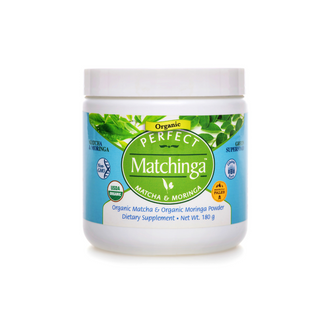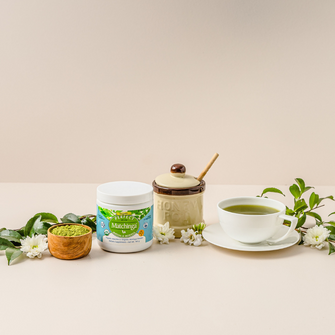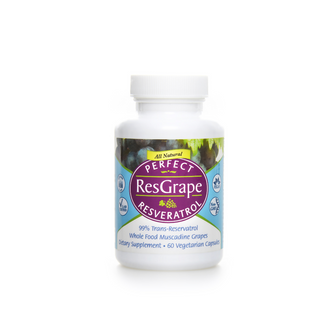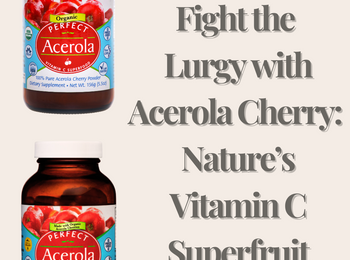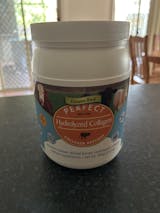Categories
We are More Microbes than We are Cells 😳
It may surprise you, but humans are more microbial than cellular! Scientists estimate that the human body contains around 30 trillion human cells, but it hosts at least 38 trillion microbial cells, primarily in the gut. This suggests that microbial cells outnumber human cells by about 1.3 to 1, though the exact ratio may vary depending on the individual and factors such as diet, lifestyle, and health.
What Microbes Do Humans Carry? 🤷🏼♀️
Most of these microbial inhabitants include bacteria, viruses, fungi, and archaea, most concentrated in the gastrointestinal tract. These tiny organisms perform essential functions, such as:
- Digesting complex carbohydrates and fibres that our bodies cannot break down.
- Regulating the immune system by teaching it to distinguish between harmless and harmful pathogens.
- Producing essential nutrients like vitamin K and specific B vitamins.
- Communicating with the brain through the gut-brain axis, influencing mood and behaviour.
Microbiome as a Vital Organ 👊🏼
Some scientists consider the microbiome —the collection of all microbial communities in and on the body—a "hidden organ" because of its critical role in maintaining health. Changes in the balance of microbial populations, a state known as dysbiosis, have been linked to conditions such as obesity, diabetes, depression, inflammatory bowel disease, and even neurodegenerative disorders.
How the Microbes Outnumber Human Cells 😮
Microbial cells are much smaller than human cells, so their mass is relatively small—about 2-3% of total body weight. For instance, while our gut alone harbours trillions of bacteria, most are only micrometers in size. The concentration of microbial cells varies throughout the body, with the gut microbiota being the largest and most diverse microbial community.
This symbiosis demonstrates how intricately microbes and humans depend on each other, blurring the lines between what is "human" and "non-human" within our bodies. The collective genome of these microbes (the microbiome) contains far more genes than the human genome, adding even more significance to their role in our physiology and health.
The human gut is home to 100 trillion microbes—mainly bacteria—that perform essential functions for maintaining health. These microbes interact with our body through a complex network, influencing digestion, metabolism, immunity, and mental well-being.
Critical Functions of Gut Bacteria 🦠
1. Nutrient Production and Digestion
- Gut bacteria help break down dietary fibre and produce short-chain fatty acids (like butyrate), essential for gut health and energy. They also synthesize vitamins, including vitamin K and specific B vitamins, crucial for blood clotting and metabolic function.
2. Immune System Regulation
- The microbiota trains the immune system to distinguish between harmful pathogens and harmless substances, reducing inflammation and the risk of autoimmune diseases. Imbalances in the gut (dysbiosis) are linked to inflammatory bowel disease (IBD), allergies, and other immune disorders.
3. Weight and Metabolism Management
- Gut microbes influence energy metabolism by breaking down complex carbohydrates and regulating fat storage. Studies have shown that specific bacteria populations can affect obesity and insulin resistance, making them key players in weight management.
4. Mental Health and Mood Regulation
- The gut-brain axis refers to the communication between the gut microbiota and the brain. Gut bacteria produce neurotransmitters like serotonin and dopamine, influencing mood, anxiety, and depression. Alterations in the gut microbiota have been associated with mental health conditions such as anxiety and autism.
5. Protection Against Pathogens
- Beneficial gut bacteria form a protective barrier against harmful microbes by competing for resources and stimulating the production of antimicrobial compounds. This barrier function helps prevent infections and maintains a healthy digestive tract.
6. Impact on Chronic Diseases
- Dysbiosis, or an imbalance in gut microbiota, has been linked to various diseases, including diabetes, cardiovascular disease, cancer, and neurodegenerative disorders like Alzheimer's. Restoring balance through diet, probiotics, or prebiotics is a promising strategy for disease prevention.
Maintaining a Healthy Microbiota 🦠
Diet, lifestyle, antibiotic use, and Stress influence a healthy gut microbiota. Diets rich in fibre, fermented foods, and polyphenols promote microbial diversity and balance. However, disruptions through antibiotics or poor dietary choices can lead to dysbiosis, increasing susceptibility to diseases.
The study of gut bacteria is advancing rapidly. Research focuses on their roles in xenobiotic metabolism—how the gut processes drugs, pollutants, and other foreign substances—further emphasising their significance in health management.
For more in-depth insights, you can explore these studies further through journals like Frontiers in Microbiology and the International Journal of Molecular Sciences, which delve into the microbiota's intricate mechanisms and emerging therapeutic potential.
Ways to Improve the Health of the Gut Microbiome 🌼
Improving the gut microbiome naturally involves lifestyle and dietary changes that foster microbial diversity and balance. Here are some evidence-based strategies to help you enhance your gut health:
1. Eat a Variety of Fibre-Rich Foods
- Dietary fibres from fruits, vegetables, legumes, and whole grains feed beneficial gut bacteria. Prebiotic foods like onions, garlic, leeks, and bananas are particularly good at stimulating the growth of helpful microbes. You might like to add Zesti™berry addictive™ daily greens to your cart 🛒 when you're next shopping with us as it contains three different types of healthy (gut-loving) fibres that are prebiotic (they feed the gut microbes to keep them healthy). Zesti™ also contains shelf-stable probiotics that activate in your body so you can take your probiotics travelling with you! It does not need refrigeration.
2. Incorporate Fermented Foods
- Fermented foods contain probiotics or live beneficial bacteria. Foods like yoghurt, kefir, sauerkraut, kimchi, miso, and kombucha can introduce new microbial strains into the gut, improving diversity and promoting health.
3. Reduce Sugar and Artificial Sweeteners
- Diets high in sugar and artificial sweeteners can promote the growth of harmful bacteria and decrease microbial diversity. Artificial sweeteners like aspartame may negatively affect the gut microbiota and glucose metabolism.
Studies into artificial sweeteners have faced criticism for potential bias, mainly when funded by the food industry. Research has shown that studies financially backed by artificial sweetener companies are more likely to produce favourable outcomes. A review by researchers at the University of Sydney revealed that industry-sponsored studies often emphasise benefits while downplaying risks. These findings suggest that financial conflicts of interest can influence study results and conclusions, highlighting the need for more transparent, unbiased research practices in nutrition science. Measures to reduce sponsor influence are urgently needed to maintain public trust.
Always follow the money! 💵
4. Consume Polyphenol-Rich Foods
- Polyphenols, found in foods like dark chocolate, berries, green tea or a green tea blend like Perfect Organic Matchinga, and red wine*, are compounds that feed beneficial bacteria while also acting as antioxidants to reduce inflammation in the gut.
*We don't recommend wine. Alcohol in any form is a toxin that puts a load on the liver, gut, brain, and hormone balance. It's very disruptive to health, full-stop. You would be better off taking a Resveratrol supplement over drinking red wine for polyphenols. We can recommend the Perfect ResGrape here.
5. Increase Physical Activity (you gotta move; it's non-negotiable if you can)
- Regular exercise is associated with greater microbial diversity. Studies show that moderate exercise can promote the growth of beneficial gut bacteria and improve gut function.
6. Manage Stress (yeah, we know this is the most challenging)
- Chronic Stress disrupts the balance of the gut microbiome. Yoga, meditation, or deep breathing can improve gut health by reducing stress. Another thing to be mindful of is our self-talk and thoughts, as negative thoughts can also create stress. It feels like a lit sometimes, but you will get there.
7. Get Enough Sleep (another one we know can be hard for people)
- Poor sleep negatively affects gut health. Aim for 7-8 hours of quality sleep per night to help maintain a healthy microbiome. We have written many sleep blogs over the years to help people with their sleep hygiene.
8. Limit Antibiotic Use
- Antibiotics can wipe out both good and bad bacteria. Use them only when necessary, and consider taking probiotics after a course of antibiotics to restore balance
9. Take Probiotic and Prebiotic Supplements
- Probiotic supplements introduce beneficial bacteria, while prebiotics (like inulin or fructooligosaccharides) feed the good bacteria already in your gut. Both can help restore and maintain microbial balance. As mentioned earlier in this article, Zesti™ berry additive™ daily greens contains both pro and prebiotics for helping improve gut wellbeing. It also contains many other nutrients and helpful ingredients to boost overall health and energy.
10. Stay Hydrated
- Drinking plenty of water supports digestion and a healthy gut lining, helping to promote the growth of beneficial bacteria.
By following these natural strategies, you can support the health and diversity of your gut microbiome, which helps regulate digestion, metabolism, immune function, and mental well-being.
References:
https://www.frontiersin.org/journals/microbiology/articles/10.3389/fmicb.2022.999001/full
https://www.mdpi.com/1422-0067/16/4/7493
Disclaimer: The information in this article is intended purely as information, not health advice. It is not intended to treat, diagnose, prevent, or cure, and one should always seek expert advice from their trusted health practitioner.


